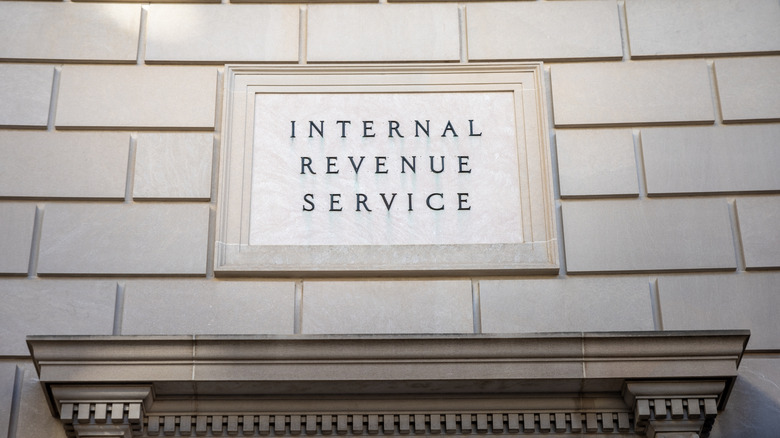The IRS Might Flag You If Your Annual Income Is Higher Than This Number
There's a queasy feeling that frequently sits in the stomachs of taxpayers in the springtime. As you prepare to file your taxes, an unsettling aura can descend on your life. Regardless of your financial circumstances, the threat of receiving a letter back from the IRS instead of your anticipated refund check can tangle you up in knots. Most Americans won't ever receive this bad news. The percentage of tax filers who are audited every year is miniscule. Just 0.44% of all individual returns (and 0.74% of corporate submissions) filed between 2013 and 2021 were flagged for audits.
Even so, there are some things you can do to flag yourself as someone worthy of a second look. Math errors are one of the most common issues that hold up a refund check. This frequently happens to those who are rushing to get their submission in by the deadline. Instead, file for an extension and take your time. Seeking to hide some of your income is another big one—especially considering the reality that the IRS also gets copies of forms like your W-2, so a standard salary arrangement with your employer really can't be fudged. But one figure in a tax return that can add to your potential increase in risk is actually contained within your income figure: $200,000.
$200,000 acts as a soft transition for increased IRS scrutiny
The first threshold that increases your audit risk is found at $200,000. Around 1% of the audits conducted by the IRS in 2024 focused on those earning less than this figure. By contrast, 4% of audits were of those earning above this figure. There's a positive correlation between earning more money and having your taxes examined just a bit more closely by IRS agents. It's perhaps because tax evasion strategies are anecdotally more prominent among wealthier individuals, or because higher earners tend to have additional avenues available to them when it comes to seeking tax reducing vehicles. High incomes can also come alongside more complicated tax filings, making a higher earner someone who may be more likely to have made an honest mistake, too.
There's also some weight to the notion that big wins are more publicly important than smaller ones. A small issue in a low-income tax filer's reporting may net an increase in collected taxes that ranges in the tens or hundreds of dollars. It's also fairly distasteful to tout your ability to catch the little guy making a small hiccup. However, a high earner may have illicitly shielded or accidentally failed to account for thousands or more in tax obligations. The more the IRS can point to its ability to uncover large fraud schemes the more leverage the agency wielded in asking for more funding and expanded departmental frills.
What can you do to limit exposure?
In a word: Nothing. If you're an individual or household earning north of $200,000 you simply have to live with an expanded overall risk of being flagged for additional inspection when filing your taxes. But that doesn't mean that higher earners have it all bad. For one thing, an expansive salary certainly helps to fund a luxurious lifestyle, and it offers the foundations for a comfortable retirement, too. As well, seeking options to (legally) avoid paying taxes is always high on earners' priority list. Those earning above this threshold have a sizeable portion of their income shielded from FICA coverage. In 2024, Social Security taxes withheld from your paycheck only were subjected up to a limit of $168,600. This means that a roughly $30,000 portion (or more) of your salary didn't have the 7.65% tax rate applied to it.
With that being said, one thing you absolutely can't do is lie on your taxes. While the window for an IRS audit is typically capped at three years, if a fraudulent filing has been uncovered, the IRS can dig up your tax history dating back essentially as far as it wants. No one should lie on their taxes, but if you have, or have discovered an unintentional fib, it's best to keep your tax records indefinitely. It's also perhaps a comfort to remember that audits are rare, regardless of your income level. But, earners with salaries even higher—upwards of $1 million—see an audit risk that's more than tripled (12.5% of returns in this range are audited).


